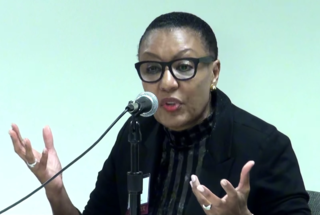A Quote by Mary Pilon
In the 1880s, women were decades away from earning the right to vote. Few owned property - if they were even permitted to do so. In addition to childcare obligations, many toiled in work that was either underpaid or not paid at all. Essentially, the gears of progress for women were moving slowly in just about every arena of life.
Related Quotes
There were others, women with stories that were told in a quieter voice: women who hid Jewish children in their homes, putting themselves directly in harm's way to save others. Too many of them paid a terrible, unimaginable price for their heroism. And like so many women in wartime, they were largely forgotten after the war's end.There were no parades for them, very few medals, and almost no mention in the history books.
I was a young feminist in the '70s. Feminism saved my life. It gave me a life. But I saw how so much of what people were saying was not matching up with what they were doing. For example, we were talking about sister solidarity, and women were putting each other down. We were talking about standing up for our rights, and women weren't leaving abusive relationships with men. There were just so many disconnects.
When the feminist movement was at its zenith in the late 60's and early 70's, there was a lot of moving away from the idea of the person. It was: let's talk about the ideas behind the work, and the people matter less. It was kind of a gimmicky thing, but lots of feminist women were doing it. Many of us took the names of our female ancestors - bell hooks is my maternal great grandmother - to honor them and debunk the notion that we were these unique, exceptional women. We wanted to say, actually, we were the products of the women who'd gone before us.
There are so many issues that impact women. When we talk about prison reform, for example, women were [once] sterilized in women's prisons. When they were giving birth, they were asked to sign paperwork but they weren't even completely conscious of what they were signing. That sounds like something that would never happen in America, but it was happening, not just in America, but in [California], one of the most progressive states in the United States.
Viking women, if they were left behind, were ruling their town. They were earls in their own right; they owned land in their own right. They could divorce their husbands if they wanted to. All of those wonderful allowances that were made for women in the Viking culture weren't really part of the Christian culture at the time.
I had very supportive parents that made the way for me, even at a time when there were very few women - no women, really; maybe two or three women - and very few, fewer than that, African-American women heading in this direction, so there were very few people to look up to. You just had to have faith.
It just struck me as really odd that there were all of these conversations going on about what young women were up to. Were young women having too much sex? Were young women politically apathetic? Are young women socially engaged or not? And whenever these conversations were happening, they were mostly happening by older women and by older feminists. And maybe there would be a younger woman quoted every once in a while, but we weren't really a central part of that conversation. We weren't really being allowed to speak on our own behalf.
Women have only had the vote for less than 100 years. Before that, we were wives and essentially kind of property. We grew up, and our parents wanted us to get married, so somebody else could look after us. And in the last few decades, it's changed. We can now have families without men. But, unfortunately, the dialogue, the old boys club, the locker room talk, has mysteriously not changed at all.
My own life values were shaped in great part by my mother, who instigated women's clubs in my village. Women were able to organize and stand together. What inspired me most about their work was the power it gave them to assert their rights and the rights of their daughters, be it education or property inheritance.
Women are more than 50% of almost every country in the world. Countries rob themselves of the resources of women if they keep them as property. It isn't that women can't find work. It's just that women don't get paid for their work and are not recognized properly. It's something that has to be on the international agenda all the time.
In our young minds houses belonged to women were their special domain, not as property, but as places where all that truly mattered in life took place - the warmth and comfort of shelter, the feeding of our bodies, the nurturing of our souls. There we learned dignity, integrity of being; there we learned to have faith. The folks who made this life possible, who were our primary guides and teachers, were black women.
Ideas about mothers have swung historically with the roles of women. When women were needed to work the fields or shops, experts claimed that children didn't need them much. Mothers, who might be too soft and sentimental, could even be bad for children's character development. But when men left home during the Industrial Revolution to work elsewhere, women were "needed" at home. The cult of domesticity and motherhood became a virtue that kept women in their place.
































